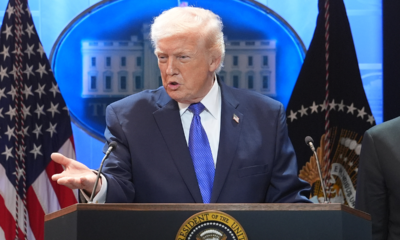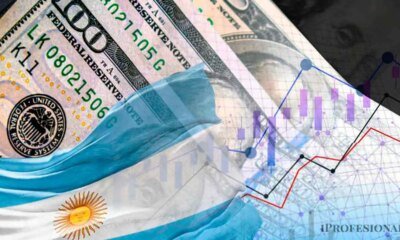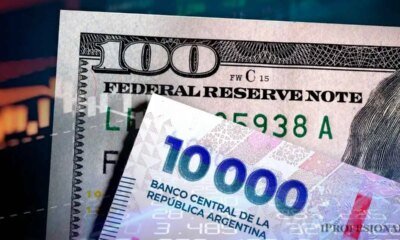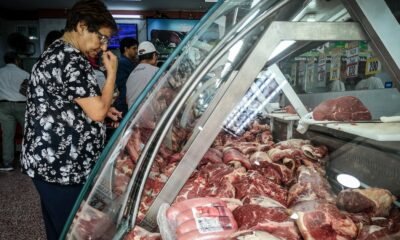INTERNACIONAL
ACLU appeals to Supreme Court to stop Venezuelan deportations; Boasberg holds emergency hearing Friday night

The American Civil Liberties Union appealed to the U.S. Supreme Court on Friday, asking for an emergency injunction against the Trump administration from deporting Venezuelan nationals held in Texas back to South America under the rarely used Alien Enemies Act.
The Supreme Court previously ruled there are restrictions on how the government can use the Alien Enemies Act of 1798, including that those targeted under it are entitled to a hearing before being deported.
Hours before appealing to the Supreme Court on Friday, the ACLU had asked two federal judges for an injunction on the deportations.
One of the judges, James E. Boasberg, scheduled a Friday evening hearing over the request.
SENATOR CALLS FOR PROBE INTO JUDGE BOASBERG AFTER DEPORTATION CLASH
The American Civil Liberties Union appealed to the U.S. Supreme Court on Friday, asking for an emergency injunction against the Trump administration from deporting Venezuelan nationals held in Texas back to South America under the rarely used Alien Enemies Act. (Drew Angerer/Getty Images)
Boasberg, who originally ruled on the Alien Enemies Act, previously found probable cause that the Trump administration committed criminal contempt in disobeying his ruling on the deportations.
The Supreme Court then ruled that only judges in the areas from where migrants are set to be deported have jurisdiction over their cases.
Boasberg is in Washington, D.C.
He told ACLU attorney Lee Gelernt on Friday evening at the emergency hearing, «I’m sympathetic to everything you’re saying, I just don’t think I have the power to do anything about it.»
Later Friday, another Washington, D.C.-based circuit judge issued an «administrative stay» on Boasberg’s contempt finding, «to give the court sufficient opportunity to consider the emergency motion for a stay pending appeal or a write of mandamus.»
The order said it should not be considered a ruling «on the merits» of the Trump administration’s motion again the contempt proceedings.
Judges in Colorado, New York and south Texas have temporarily halted deportations in those areas, but there’s no ban for the Venezuelan nationals facing possible deportation from the Bluebonnet Detention Center in northern Texas.
TRUMP REVEALS THE ONLY DETAIL HE HASN’T DECIDED IN HIS SELF-DEPORTATION PROGRAM
The ACLU has called for a deportation ban on two Venezuelans being held at the center2, saying the administration is accusing them of being members of the Tren de Aragua gang, and any immigrants in the region.
Separately, on Friday, the San Francisco-based 9th U.S. Circuit Court of Appeals rejected a bid by the Trump administration to strip around 350,000 Venezuelan migrants of their Temporary Protected Status (TPS), which would make them eligible for deportation.
TPS lasts six to 18 months and applies to people from countries that are war-torn or have a natural disaster or some other event that makes returning dangerous.
The court upheld a March ruling from a lower court that stayed Homeland Security Secretary Kristi Noem’s efforts to remove the protected status from some Venezuelans in the country.
President Trump on Friday also commented on the case of Kilmar Abrego Garcia, a Salvadoran national who had been living in Maryland and had protections against deportation, who was mistakenly deported to a prison in the county last month.
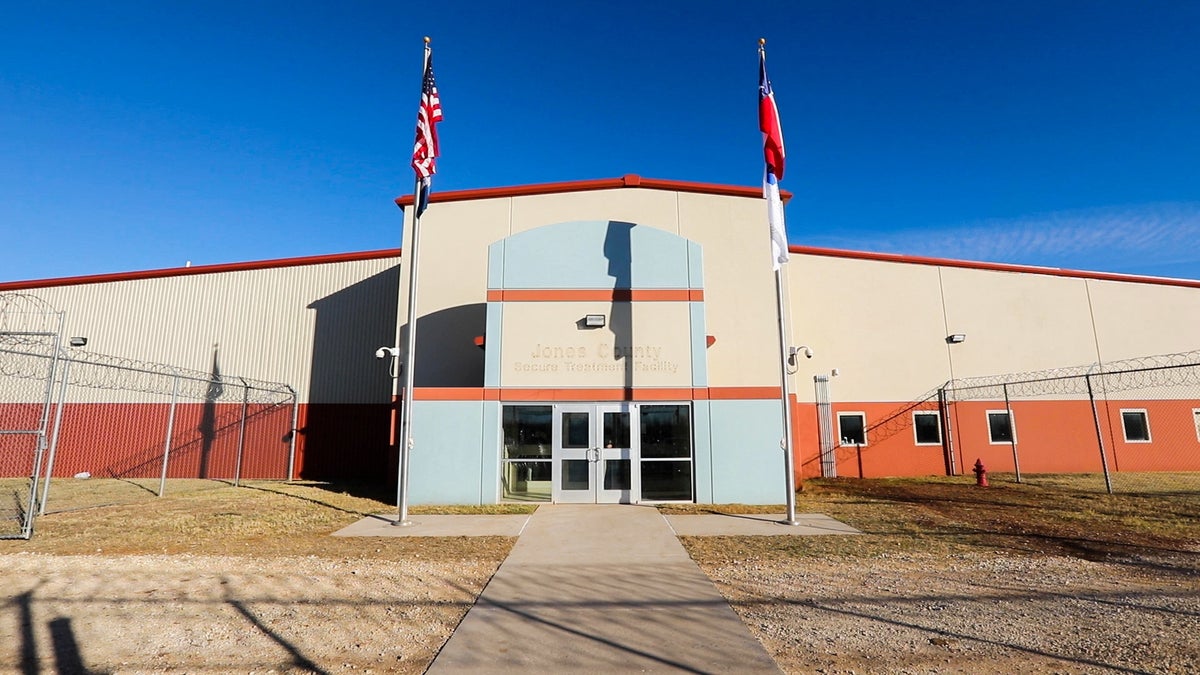
Bluebonnet Detention Facility, where Venezuelan men are currently being detained, in Anson, Texas. (Charles Reed/U.S. Immigration and Customs Enforcement/Handout via Reuters)
«This is the hand of the man that the Democrats feel should be brought back to the United States, because he is such ‘a fine and innocent person,’» Trump wrote on Truth Social with a picture of him holding a photo that shows tattoos on Garcia’s knuckles. The photo says the symbols on Garcia’s knuckles spell out MS-13.
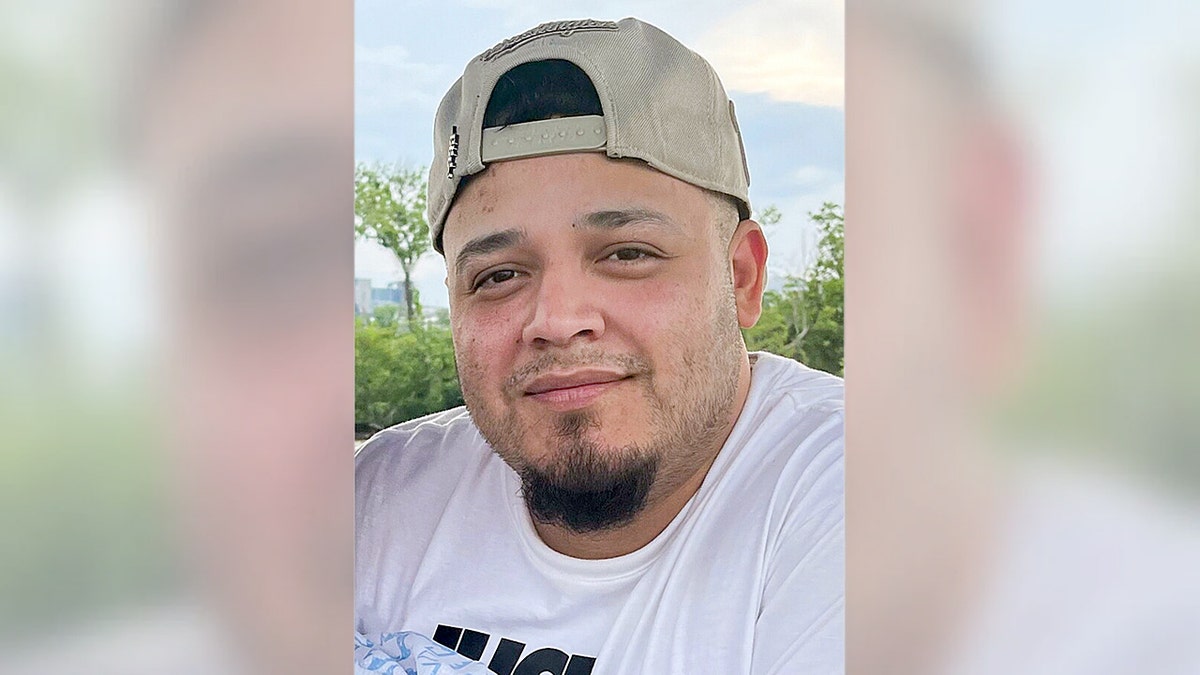
A photo of Kilmar Abrego Garcia. (Fox news)
CLICK HERE TO GET THE FOX NEWS APP
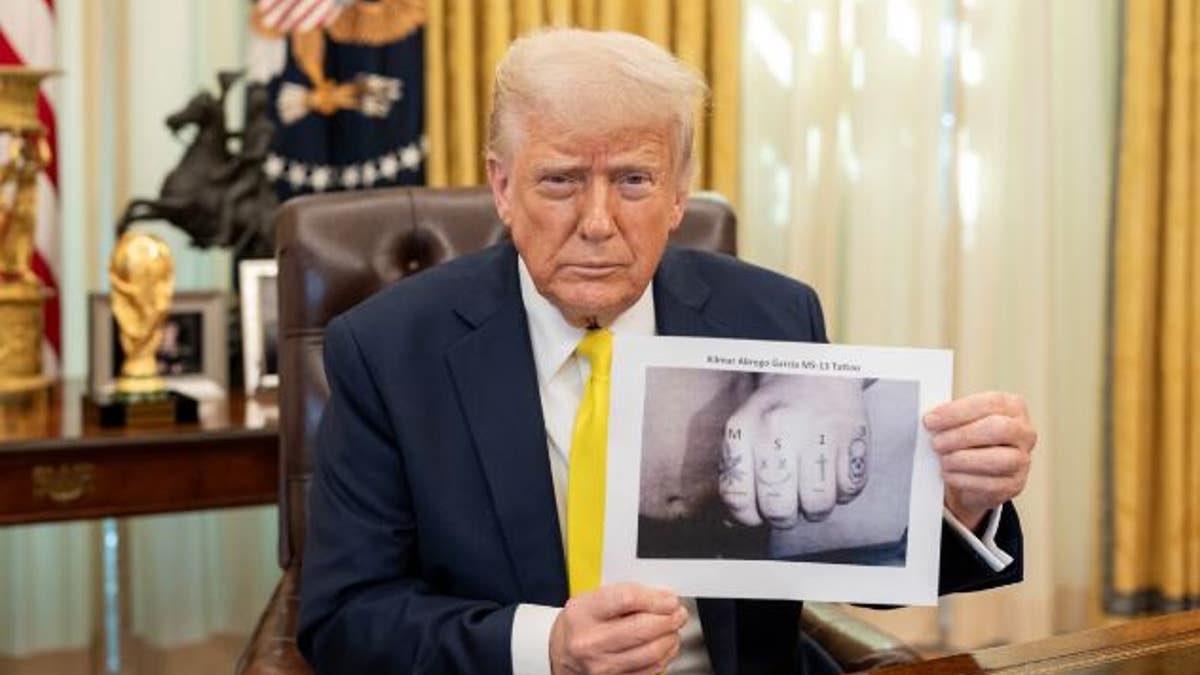
«This is the hand of the man that the Democrats feel should be brought back to the United States, because he is such ‘a fine and innocent person,’» Trump wrote on Truth Social with a picture of him holding a photo that shows tattoos on Garcia’s knuckles. The photo says the symbols on Garcia’s knuckles spell out MS-13. (President Trump/Truth Social)
He continued: «They said he is not a member of MS-13, even though he’s got MS-13 tattooed onto his knuckles, and two Highly Respected Courts found that he was a member of MS-13, beat up his wife, etc. I was elected to take bad people out of the United States, among other things. I must be allowed to do my job. MAKE AMERICA GREAT AGAIN!»
The Associated Press contributed to this report.
Politics,Deportation,Federal Courts
INTERNACIONAL
DHS shutdown drags into week two as Iran threat, SOTU clash complicate Hill talks
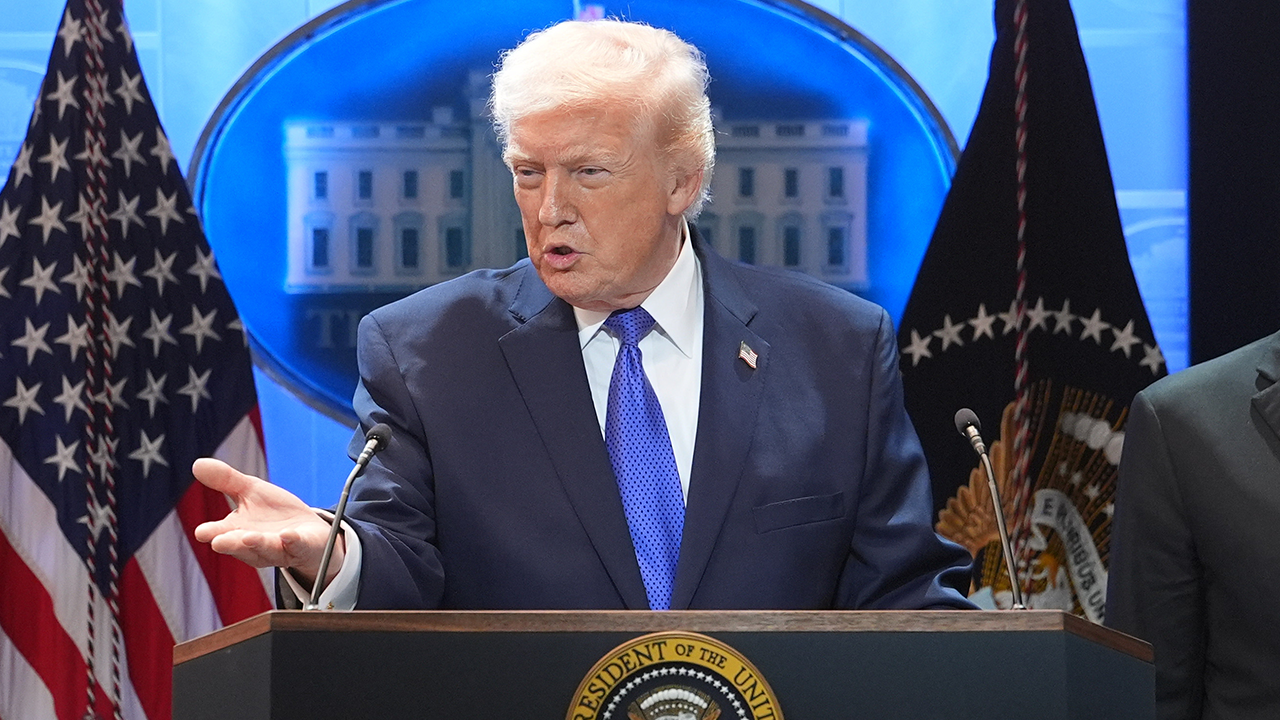
NEWYou can now listen to Fox News articles!
A government shutdown, big or small, is usually a front-and-center issue for lawmakers — but the most recent partial closure could be put on the back burner as Congress returns to several issues in Washington.
Senate Democrats and the White House are still at odds over funding the Department of Homeland Security (DHS), as the shutdown dragged into its tenth day. Neither side is budging, with the most recent concrete action coming early last week.
Trump, who proved pivotal in striking a funding truce with Senate Minority Leader Chuck Schumer, D-N.Y., in January, was not directly involved in recent negotiations.
‘TARIFFS SUCK’: SOME REPUBLICANS PRIVATELY CELEBRATE AS SUPREME COURT BLOCKS TRUMP POLICY
President Donald Trump has not had any «direct conversations or correspondence» with congressional Democrats recently. (Evan Vucci/The Associated Press )
Trump has not had any «direct conversations or correspondence» with congressional Democrats recently, White House press secretary Karoline Leavitt said, noting that the White House and its representatives have been handling the dialogue.
«But, of course, Democrats are the reason that the Department of Homeland Security is currently shut down,» she said. «They have chosen to act against the American people for political reasons.»
Senate Democrats offered a counter to the White House’s own counterproposal, which quickly was rejected as «unserious» by Leavitt. It’s a peculiar instance, given that this is the third shutdown during Trump’s second term, and neither side appears to be in a particular rush to end it.
DEMOCRATS RISK FEMA DISASTER FUNDING COLLAPSE AS DHS SHUTDOWN HITS DAY 5

Senate Minority Leader Chuck Schumer, D-N.Y., and his caucus have not relented in their position as DHS enters its tenth day of being shut down. (Nathan Posner/Anadolu via Getty Images)
Senate Majority Leader John Thune, R-S.D., told Fox News Digital that there’s «some room for give and take» in the negotiations, but remained firm in the GOP’s positioning against requiring Immigration and Customs Enforcement (ICE) agents from getting judicial warrants, unmasking or other reforms sought by Democrats that could increase risks for agents in the field.
«I felt like, you know, the last offer the White House put out there was a really — it was a good faith one, and it was clear to me that they’re attempting, in every way, to try and land this thing so we can get DHS funded,» Thune said.
Funding the agency will be a top priority for the upper chamber, but they’ll be delayed because of winter storms descending on the East Coast. The weather has caused the Senate to delay a vote on the original DHS spending bill until Tuesday night, ahead of Trump’s State of the Union address.
There are other issues that could get in the way of hashing out a deal, including a possible conflict with Iran and Trump’s desire to move ahead with tariffs without congressional approval.
GOP WARNS DEMOCRATS USING DHS SHUTDOWN TO STALL SENATE VOTER ID PUSH

Senate Majority Leader John Thune, R-S.D., warned that Senate Democrats were trying to tie up Republicans from hitting the campaign trail ahead of the pivotal 2026 midterm cycle. (Bill Clark/CQ-Roll Call, Inc via Getty Images)
Trump told reporters Friday that he was «considering» a limited military strike against Iran, which already has riled up some in Congress, who are demanding that lawmakers get a say on whether the U.S. strikes.
Sen. Tim Kaine, D-Va., said in a statement that he has a war powers resolution to block an attack on Iran filed and ready, and challenged his colleagues to vote against it.
«If some of my colleagues support war, then they should have the guts to vote for the war and to be held accountable by their constituents, rather than hiding under their desks,» Kaine said.
CLICK HERE TO DOWNLOAD THE FOX NEWS APP
On the heels of the Supreme Court’s ruling to torpedo his sweeping duties, Trump is considering bypassing Congress to move ahead with another set of global 10% tariffs.
That comes as some Republicans are quietly celebrating the end of the duties, and others are open to working with the administration on a path forward for trade policy.
On tariffs, a Republican aide told Fox News that the GOP was «waiting to see what POTUS does next.»
«The State of the Union should be interesting,» they said.
politics,senate,government shutdown,homeland security
INTERNACIONAL
Tourists trapped in Puerto Vallarta recount cartel retaliation after El Mencho killed

NEWYou can now listen to Fox News articles!
Following the reported killing of major cartel leader Nemesio Oseguera, known as El Mencho, multiple American tourists vacationing in Puerto Vallarta told Fox News Digital they unexpectedly found themselves in the middle of a violent cartel retaliation.
As airlines canceled flights and authorities issued shelter-in-place orders, stranded visitors reported cars set ablaze, suspected cartel members blocking major roads, and stores ransacked by looters — scenes some witnesses said made parts of the popular resort city feel like «a war breaking out in the streets.»
Witnesses said they were forced to evacuate their rooms, manage with limited hotel food, and even venture outside in search of meals while waiting for Mexican authorities to regain control of the city.
Staying at an Airbnb near a main road, Eugene Marchenko, 37, of Charleston, South Carolina, told Fox News Digital he woke up to blaring horns and saw six cars completely engulfed in flames just outside his balcony. He and his wife, who had arrived in Mexico only a day earlier, were forced to evacuate for several hours, fearing that a nearby fuel tanker, also ablaze, could explode.
MAJOR DRUG LORD ‘EL MENCHO’ KILLED IN MEXICAN MILITARY OPERATION WITH U.S. INTELLIGENCE SUPPORT
«I looked down and they’re completely engulfed in flames,» Marchenko said. «It was six cars in total that burned and one fuel tanker.»
He said he watched a neighbor’s video showing men he believed to be cartel members forcing people out of their vehicles, then pouring gasoline and setting the cars on fire.
«They told the people to leave,» Marchenko said. «Then they were taking the gas and pouring the gas on the vehicle and waiting until everybody was clear before they were setting it on fire.»
Later in the afternoon, Marchenko ventured out to find food and said he saw pharmacies and corner stores completely burned down, adding that younger crowds had broken into nearby buildings to loot beer and cigarettes.
CARTELS OUTGUN POLICE: ROCKET LAUNCHERS SEIZED IN EL MENCHO RAID SPOTLIGHT CJNG FIREPOWER
Vehicles appear to carry multiple armed forces in Puerto Vallarta. (Fox News Digital)
Videos obtained by Fox News Digital show a helicopter hovering above his building, circling as if searching for someone, while Mexican armed forces and armored vehicles moved through the streets below.
Public transportation and Ubers had come to a complete halt, Marchenko added, saying that even if flights resume, he is unsure how they would reach the airport.
Despite the chaos, Marchenko noted that no one appeared to panic.
«There’s definitely not any panic from almost nobody here,» he said. «I think it’s interesting, almost everybody was just annoyed more than anything.»
SOCCER MATCHES POSTPONED AFTER MEXICO KILLS CARTEL LEADER ‘EL MENCHO’ NEAR WORLD CUP HOST

A plume of smoke rises in Puerto Vallarta on Feb. 22, 2026. (Fox News Digital)
Adriana Belli, 49, another visitor from Miami, told Fox News Digital that she had planned to spend over a week in Mexico to attend a wedding in Guadalajara and celebrate a friend’s birthday in Mexico City.
Belli said the sudden outbreak of violence was especially shocking, noting that she had spoken with American tourists staying at her Marriott resort who insisted the area was extremely safe after visiting Puerto Vallarta for 24 years.
She added that guests who had gone to the airport were under lockdown and were managing with the limited food available.
«A lot of the other tourists who had early morning flights were actually able to get to the airport, but they are now locked down in the airport and unable to leave,» she said. «So what we heard from other guests is they are just sort of surviving off of granola bars.»

A fuel tanker was set ablaze near a gas station in Puerto Vallarta on Feb. 22, 2026. (Fox News Digital)
Another source staying at a separate resort told Fox News Digital that restaurants and room service had been shut down. Guests were brought to the lobby for what was described as «the last bit of food.»
He added that this was the first trip where he and his wife were away from their 4-year-old son, and that he had to call home to tell family members where to find their will.
«This is the first time we’ve ever been away from him. My wife was saying, ‘We’re never leaving him again,’» he said. «I had to call my mom today and, you know, just tell her, ‘Look, here’s where my will is. We just created this. I don’t want you to panic, but I may need you to stay a couple days extra with my son.’»
CLICK HERE TO DOWNLOAD THE FOX NEWS APP
He added that, despite the area appearing like a war zone, he is remaining optimistic that the authorities will restore order in the coming days.
Mexico’s Defense Department said Sunday that Oseguera was killed in a military operation. The news reportedly triggered widespread unrest and uncertainty across multiple states as Mexican authorities worked to stabilize the region.
location mexico,mexican cartel violence,world,latin america
INTERNACIONAL
Afirman que Nahuel Gallo está en huelga de hambre total: no come ni toma agua
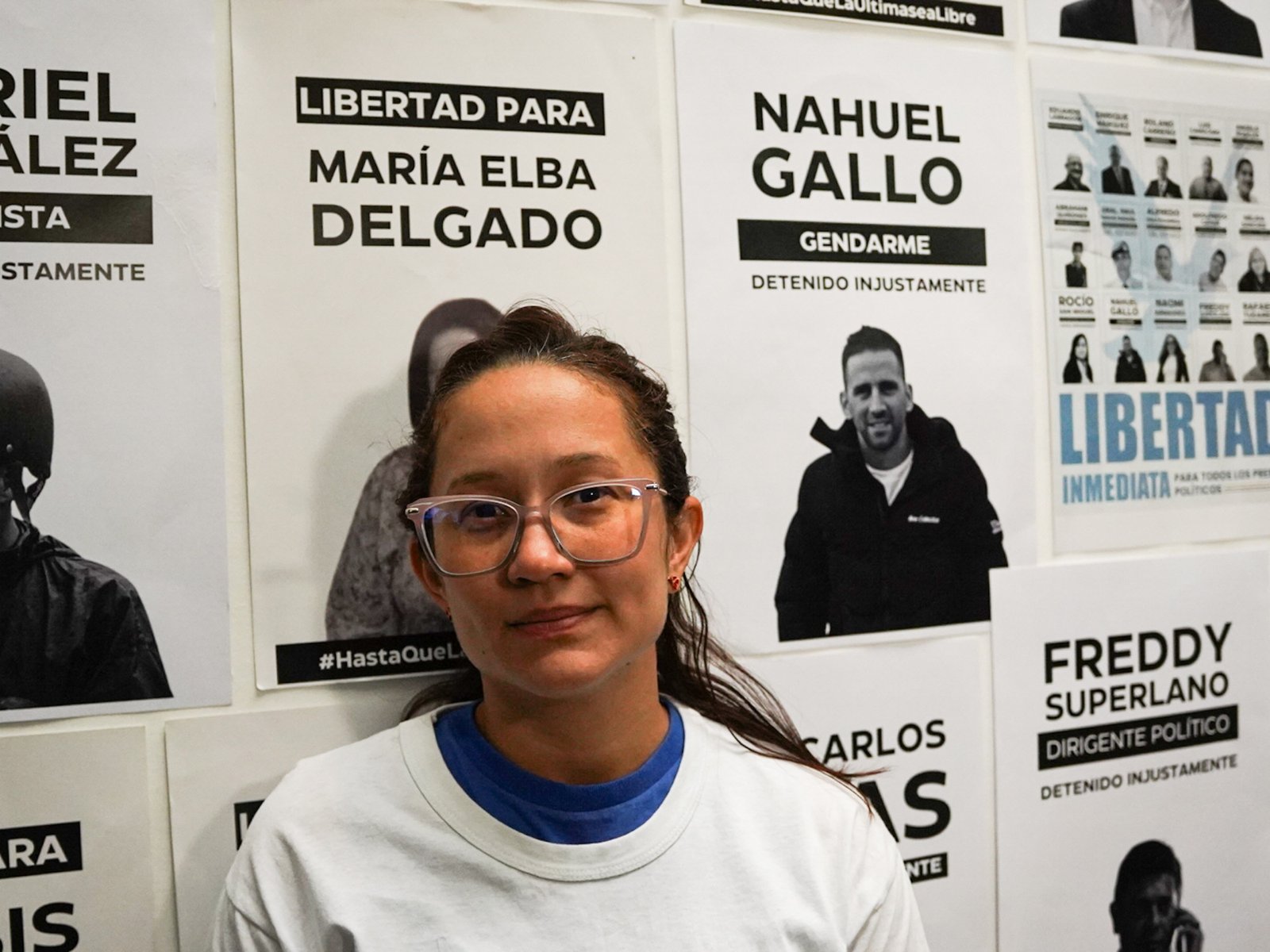

 ECONOMIA2 días ago
ECONOMIA2 días agoVillarruel cuestionó la apertura de importaciones: «Sin industria, se pasa a depender de China»

 POLITICA2 días ago
POLITICA2 días ago“Ahora es la hora de jugarse”: el mensaje de Patricia Bullrich a los empresarios tras aprobarse la reforma laboral

 ECONOMIA2 días ago
ECONOMIA2 días agoSegún un especialista, el precio de la carne se mantendrá alto “entre dos y tres años”

